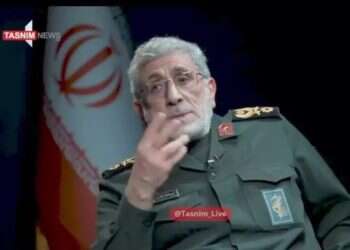The prospects of restoring the nuclear agreement between the United States and Iran are drifting away, an official told Israel Hayom Friday, citing Tehran's response to Washington's latest proposal and internal political processes in the US.
Follow Israel Hayom on Facebook, Twitter, and Instagram
The official estimated that the 2015 deal will not be renewed at least until after the midterm elections slated for Nov. 8. Nevertheless, the official said that if an agreement is reached, it will most survive a rejection by Congress even if Republicans obtain a majority in the House of Representatives and the Senate – as polls predict they will.
According to reports, Deputy Secretary of State Wendy Sherman, an ardent proponent of the deal, has expressed pessimism in conversations with Democratic senators who oppose the agreement, and hinted that negotiations might not lead to a breakthrough.
The official also told Israel Hayom that the administration fears that rushing into an agreement with Iran could undermine the Democratic Party's chances in the midterm elections, which is why they would prefer to postpone the negotiations until after the event.
A new possibly Republican-majority Congress will not be sworn in until the beginning of January next year, but the official estimated that even if talks continue into 2023, President Joe Biden will veto any decision disapproving the deal. According to the US Constitution, Congress can override the president's veto with a two-thirds majority in both houses, but Republicans are unlikely to garner such a majority, even with the number of Democrats opposing the accord.
The biggest dispute between Washington and Tehran is the International Atomic Energy Agency's investigation into enriched uranium traces found at three undeclared Iranian nuclear sites. The West has sought an explanation from the Islamist republic, fearing it conducted clandestine nuclear activities, but Iran has so far refused to provide answers and insists on ending the probe as part of restoring the nuclear agreement.
If true, Iran will have violated the Treaty on the Non-Proliferation of Nuclear Weapons and might be subject to sanctions regardless of whether the deal is renewed.
Tehran has also demanded a promise that no future US president will be able to withdraw from the accord, as then-US President Donald Trump did in 2018, but Washington has turned down the request, also due to legal aspects that limit such a move.
Subscribe to Israel Hayom's daily newsletter and never miss our top stories!




